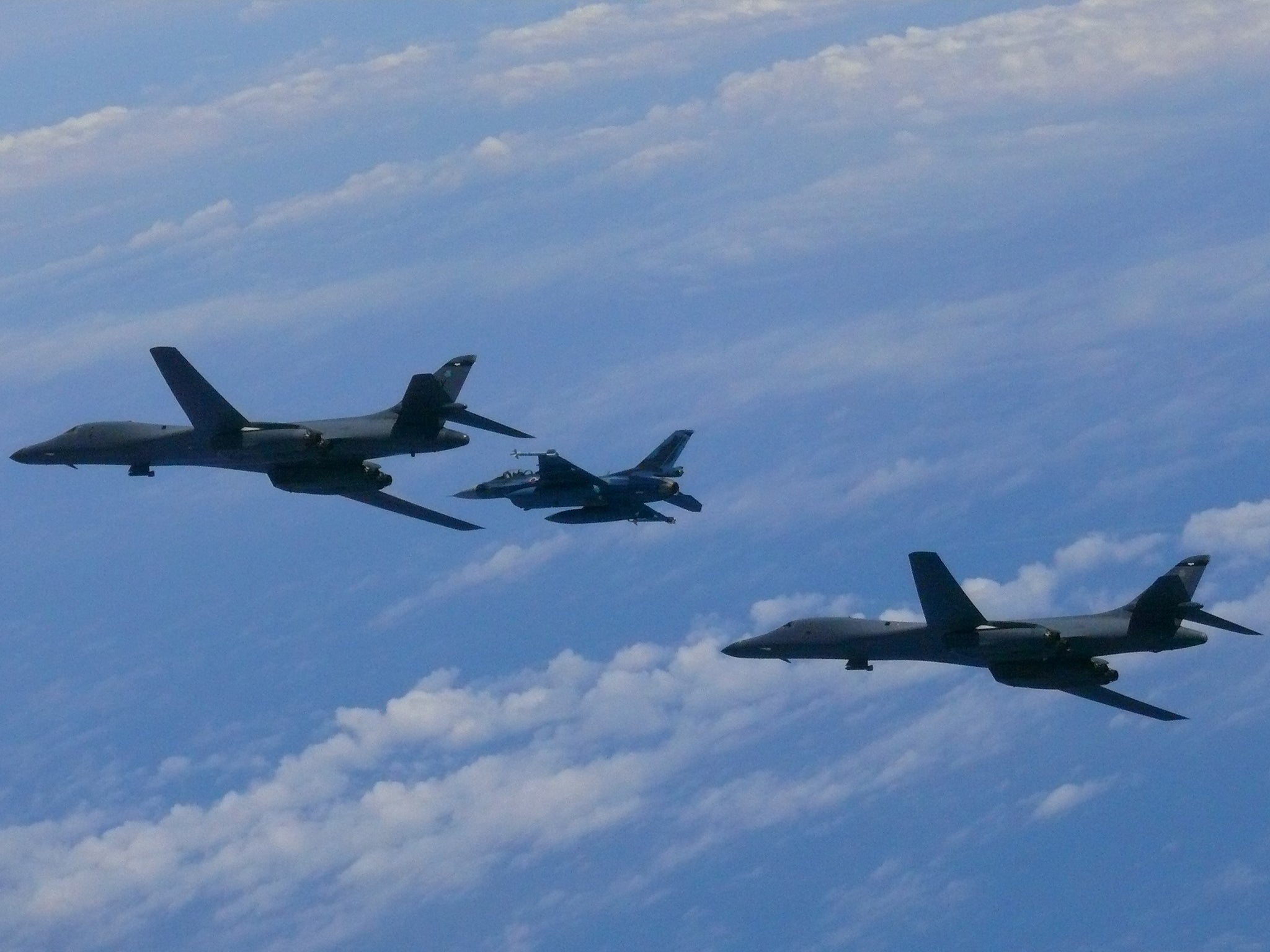Japan's military chiefs ask for £1.2bn to spend on missile defence after North Korea's latest launch
Includes hundreds of millions of dollars for missile defence

Your support helps us to tell the story
From reproductive rights to climate change to Big Tech, The Independent is on the ground when the story is developing. Whether it's investigating the financials of Elon Musk's pro-Trump PAC or producing our latest documentary, 'The A Word', which shines a light on the American women fighting for reproductive rights, we know how important it is to parse out the facts from the messaging.
At such a critical moment in US history, we need reporters on the ground. Your donation allows us to keep sending journalists to speak to both sides of the story.
The Independent is trusted by Americans across the entire political spectrum. And unlike many other quality news outlets, we choose not to lock Americans out of our reporting and analysis with paywalls. We believe quality journalism should be available to everyone, paid for by those who can afford it.
Your support makes all the difference.Japan's defence chiefs are seeking a record $48bn budget next year that includes $1.6bn (£1.2bn) for missile defence and an extra $160m for research and development.
The announcement comes less than a week after North Korea fired a nuclear-capable ballistic missile over Japan's northern Hokkaido region, provoking a storm of outrage around the world.
Prime Minister Shinzo Abe denounced the launch as an "unprecedented, serious and grave threat" to the region.
The defence ministry's latest budget request includes funds, totalling a reported $1.6bn (£1.2bn), for upgrades to the nation's ballistic missile defence systems designed to shoot down incoming projectiles.
Part of the smaller allocation would go towards development of longer-range missiles that could potentially be used in a strike capacity.
Such a weapon would be politically controversial in Japan, whose post-WW2 constitution, imposed by the US during occupation, has a pacifist and defensive stance.
The document has not prevented Japan from amassing a highly capable military force, however.
Mr Abe has proposed altering the constitution to "establish the status of the Self-Defence Forces explicitly" in order to "leave no room for contending the SDF could be unconstitutional".
Military historian John Kuehn told CNN last year: "Pilot for pilot, ship for ship, Japan can stand toe to toe with anybody."
Following the budget request, one member of the ruling Liberal Democratic Party said: "Striking enemy bases after an attack to stop subsequent launches would seem like a natural thing to do, but that would be difficult for people in Japan to accept under the current constitution."
A second portion of the $160m—some $90m—will go on studying hypersonic missiles to quickly penetrate enemy defences.
"The research and development is for island defence," a Ministry of Defence official told a briefing, referring to the southwestern Okinawa island chain skirting the East China Sea, where Japan is embroiled in a territorial dispute with China.
Chinese Foreign Ministry spokeswoman Hua Chunying said Japan had consistently hyped the so-called "China threat" to increase its defence spending, and urged it to learn the lessons of history and pay heed to its neighbours' security concerns.
"Regardless of what its reasons are, Japan's defence spending is increasing every year and has reached a new historical high. We express concern about this," Ms Hua told a regular press briefing.
The latest funds will pay for ballistic missile defence upgrades, six F-35 stealth fighters, four V-22 Osprey tilt rotor troop carriers, besides orders for new naval vessels, including a submarine and two compact warships.
They have yet to be approved by the government.
Additional reporting by agencies
Join our commenting forum
Join thought-provoking conversations, follow other Independent readers and see their replies
Comments